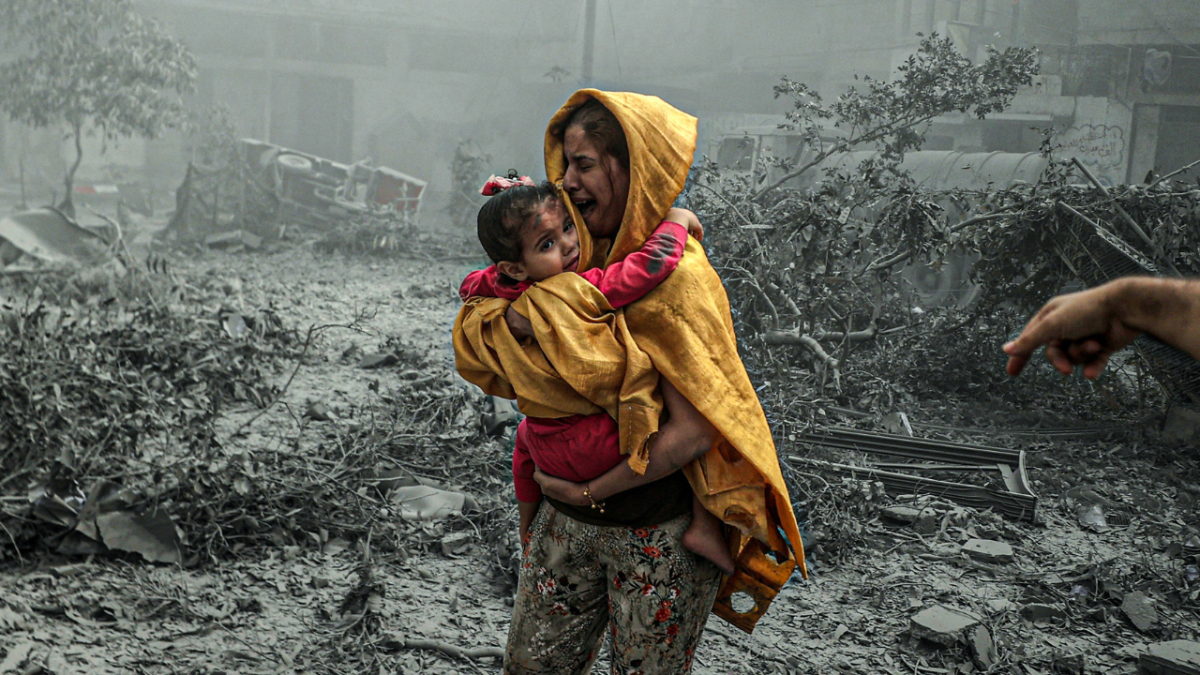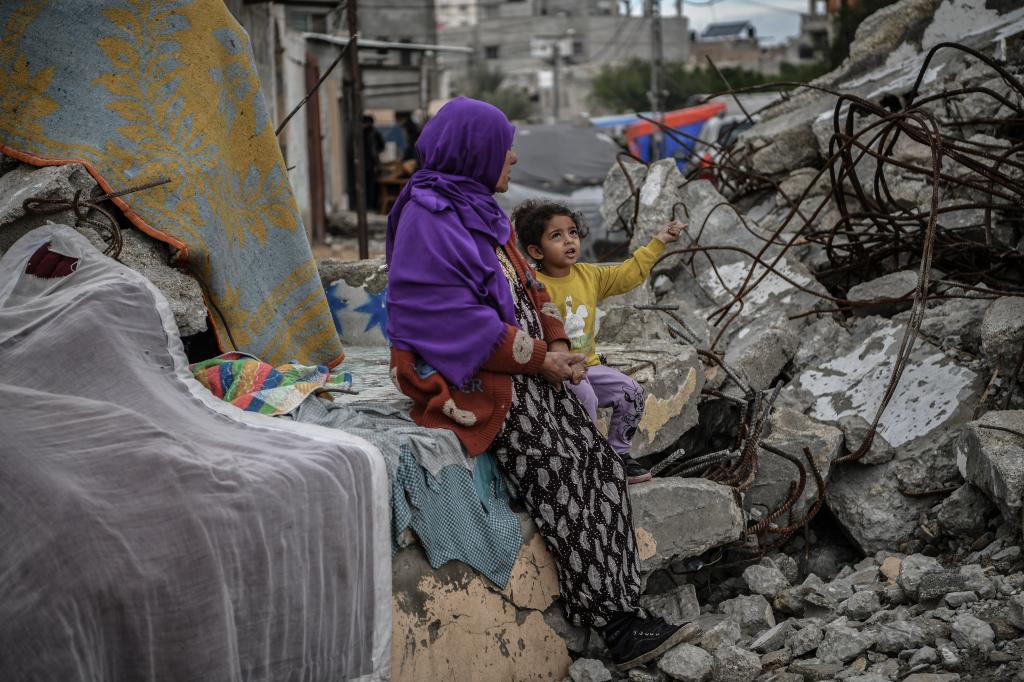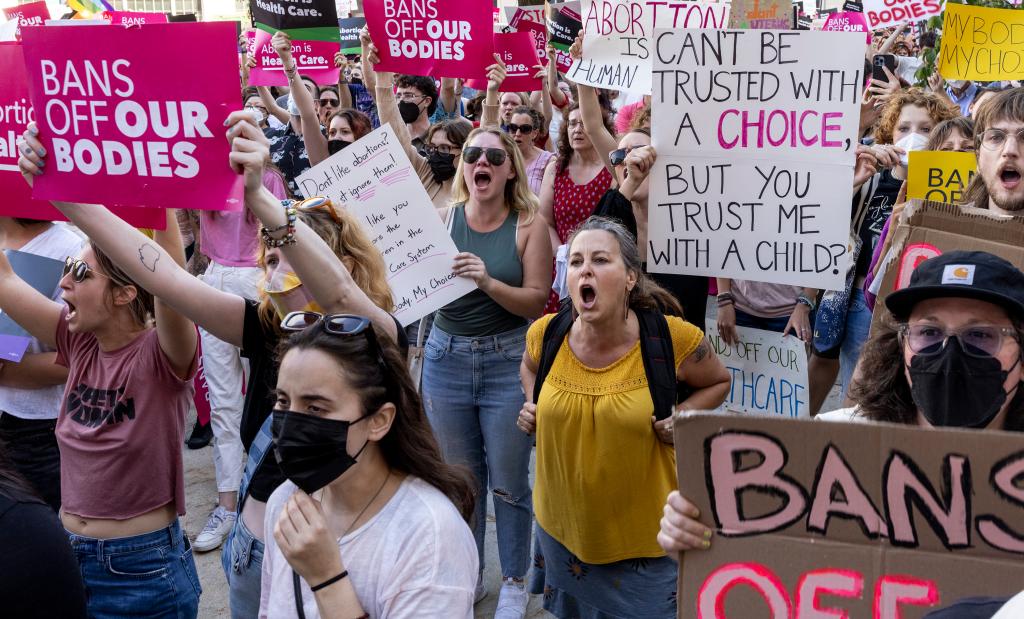
International Women’s Day is upon us yet again, and like the last few years, I continue to feel disillusioned with how we celebrate a day that was once a radical call to action — but has now been defanged and girlbossified into corporate panels and celebrations of women CEOs. You, too, can contribute to the exploitation of workers! You, too, can have it all! But what we don’t dare to dream for, to be ambitious about, is ending the violence so many women are suffering right now and across the world.
Wake up. Grab phone. Open Safari. Check Al Jazeera‘s rolling coverage of deaths in Palestine. Close Safari. Open Instagram. Scroll through countless videos, pictures, infographics, screenshots of Twitter-threads, news articles and Stories about the events unfolding in Gaza, and also Sudan, the Congo Republic, the US, everywhere around the world and right here at home. Close phone. Sometimes feel everything. Sometimes feel nothing.
This is what my days have looked like for the past few years, and but especially in the past few months.
Since October 7, after Hamas attacked Israel and in response the occupying state intensified its mass killing and displacement of Palestinians, there’s been a charge to the air when I’m out and about, and a despair when I’m back in my bed, that has burned away any remaining respect I might have for a day like International Women’s Day.
The theme for this year is “Investing in women: Accelerating process”, which the United Nations defines as literally investing in women financially. Women need money to escape poverty, domestic violence, unsafe work environments, war zones, the list goes on.
The UN article about the theme discusses climate change, sweatshops, wage gaps, land ownership and business ventures. It discusses how lack of financial resources disproportionately affects women from the global south and from racialised and migrant groups. It discusses how investing in women is investing in the world. It talks a lot about the economy, and how investing in women would boost it.
And while all this is true, the entire time I read it, I thought to myself: I don’t care.
I don’t care about the economy right now, I don’t care about International Women’s Day, I don’t care about these articles, I don’t care what events are being held in honour of it, because I am so tired of the fact that we have to justify saving women from human rights abuses at all.
Why do we need to prove that helping women will benefit everyone before it’s something worth investing in? Why do we have to beg for our humanity? And how can I care about talks and panels and brunches about International Women’s Day when women around the world are starving, being bombed, being sexually assaulted, or being tried criminally for trying to access their reproductive rights?

The Israeli defence force is killing Palestinian women at exponential rates, with absolutely no intervention by our government — who, by the way, signed a $917 million deal with an Israeli arms manufacturer.
Since October, more than 30,000 people have been killed in Palestine. Many of those were women — but those that weren’t still matter, too. The dismissal of Palestinian men’s suffering has been frustrating for Palestinians, Arabs and the Muslim diaspora. Yes, Israel killing defenceless women and children is atrocious — but killing men is also atrocious? Palestinian men matter deeply to their communities and to me right here in Australia? And they, too, suffer from the same patriarchal colonialism and white supremacy that victimises their female counterparts. The gendered nature of our conversations around those who have been killed in Palestine is another reason I get further pushed away from the western feminism of it all.
Women who have survived Israel’s brutal occupying regime — which has been found to be plausibly committing genocide — are using scraps of the tents they live in as menstrual pads. They have no access to reproductive hygiene. They are giving birth in rubble, with no electricity, without even a clean cloth, and with no hospitals to help them. They have no clean water and barely any food.
In Sudan, women are bearing the brunt of a vicious civil war between the Sudanese Armed Forces and the paramilitary Rapid Support Forces. Millions of people have been displaced, including more than 100,000 pregnant women, with more than 80 per cent of the country’s hospitals out of commission.
Sexual and gender-based violence has also taken an appalling toll on women and girls who risk exploitation and abuse if they rest in makeshift shelters — and they have nowhere else to go. They are not safe anywhere.
In more privileged, apparently liberated parts of the world, we are still seeing a clear erosion of women’s rights. In the US, reproductive rights have been under attack since Roe V Wade was overturned. Women are being tried as criminals for seeking reproductive health and bodily autonomy.

For Muslim women, the fight for bodily autonomy transcends state lines. It doesn’t matter where we live, we’re still being told what we can and can’t wear. Those who wear hijabs and live in diaspora are being targeted by hate crimes at increased levels as the ugly head of racism continues to rise.
Here in so-called Australia, on average one woman is killed by a current for former partner every week. First Nations women continue to suffer from the colonial state. They are incarcerated at disproportionately high rates, victimised by police, their children are stolen from them, their health is under attack, all while their land continues to be desecrated.
Often, we use International Women’s Day as a springboard to talk about all the achievements women have accomplished, and the power they have as individuals to climb up the ladder and create change.
There are absolutely powerful women at the forefront of activism around the world who are shedding light on the horrific suffering of their people, who deserve recognition.
But when I think about International Women’s Day, I can’t bring myself to write a celebratory article. All I can think about are women cowering in shelters as violence rages around them, mothers wailing over the bodies of their sons, little girls picking brain matter out of puddles of dirty water because it’s the only thing they can find to drink.
What does International Women’s Day mean when, to these women, today is just another day?



